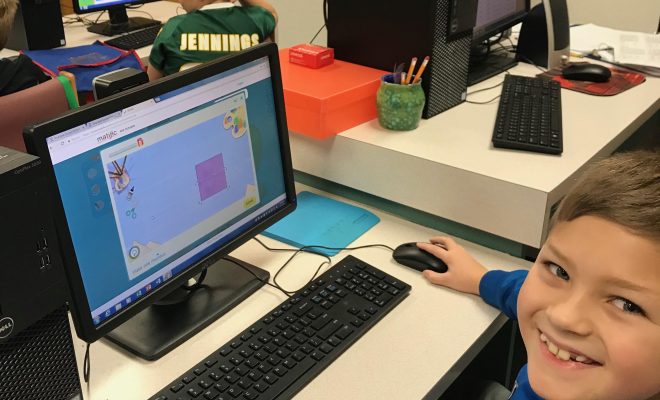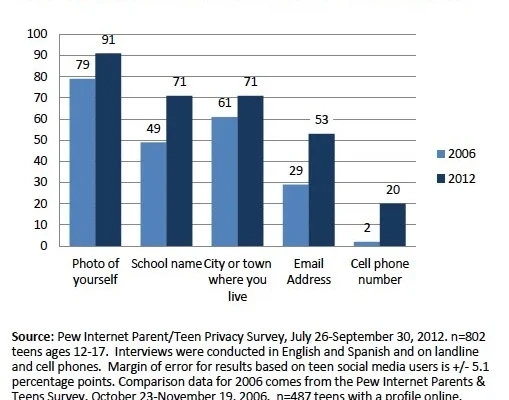22 Tips for Edtech Companies

Edtech companies are being started at a staggering rate. Each promises to resolve an issue, transform education, be better than its competitors, and ultimately change the face of education. While these traits may be commendable, there is no doubt that edtech companies are struggling in a market that is over saturated with products and idea. In order to succeed, there are 22 things that they should know.
- Make sure you understand the education sector
The education sector is a complex marketplace. Not only does every school district have varied needs but edtech products need to appeal to parents, students, administrators and school boards. Many edtech companies do not understand who they need to get buy-in from, and so cannot find a way into the classroom. Another problem is that too often edtech creators do not understand the actual needs of teachers and students, but their perceived needs. They create products that are solving already solved problems and trying to reinvent the wheel. Edtech creators should not be designing products for their own reasons but actively figure out what the problems of the modern classroom are and will be. Failure to do this leads to the creation of products that are useless.
- Choose the right business model
Many edtech products have embraced the freemium pricing model as the norm. This is attractive to new consumers (who like to get things for free) but can be detrimental to edtech companies if those same consumers do not buy the upgrades and in turn, bring money into the company. New edtech companies need to best understand how to sell their product and how to build investor confidence. Not every product will benefit from a freemium model and creators need to understand what plans are available on the market. Without a deep understanding of pricing and the different edtech business models, new companies will never see a cent in profit.
- Create engaging and unique products
Technology should engage students in the classroom, not isolate them. Using it for multiple-choice tests and individual activities is not the best use of educational technology; rather, technology should engage and improve education in the same way great teachers do. For example, teachers can create various and personalized lessons and later assign different lessons to kids in the same room. Or each child can work on a different assignment, form an opinion as a result, and share it with other kids in the discussion.
With a marketplace bursting with “innovative” products, the death of many edtech companies is because their product is not unique enough to compete. This is not to suggest that entrepreneurs are not forward thinking but that their products are too similar to products that are succeeding or already have a strong user base. Investors are unlikely to invest in products that do not stand apart from their competitors and administrators will not be interested buying products that they essentially already own. New edtech companies need to do their homework and ensure that their products do not mimic other products and that they offer something new. This is an essential factor if their products are to be a success.
- Be prepared to invest a lot of time and energy
How much time do you need to build a successful company? More than you think. A thriving company takes years to evolve. Having a business plan written on paper is just a good start, but you also need to work on launching your beta product, and, eventually, the final version. You also need to take the time to promote your product to different schools and regions.
In this whole process, don’t forget to surround yourself with the right people. No matter how good of a subject matter expert you are, having a good team of talented professionals is always a good idea. Additionally, you will need to work with teachers, students, and principals to get their feedback so you can develop the technology that best suits their needs.
The growth of any new company is slow, and for edtech companies, there is very little hypergrowth. Most companies will only see growth after 5 to 10 years of commitment. This can be uninspiring and moral crushing for new companies who have followed the freemium model and may not see any profit for a while. Having patience and providing investors with data and user numbers is important in building long-term confidence and a solid relationship. Edtech entrepreneurs too often do not see the yield of their product, and so they lose hope, and the product comes to a quick death.
- Leverage your unique strengths
Even if you don’t have experience, you can successfully launch a product using your existing strengths and acquire more skills along the way. But keep in mind that in product design is not the only challenge in educational technology. Once you launch your product, understanding how sale cycles in education function might be a lot harder. In this situation, following the industry is not a requirement, but it can be an advantage.
- Measure success and focus on the mission and end goal
Challenges are inevitable, so instead of worrying and giving up, focus on what is most important to you. Find your “why.” What does success look like to you? Define your mission, use it to motivate you, and take one more step towards your goal every day.
For example, you can focus your attention on producing great content that will revolutionize teaching and learning. Technology is now personalized enough to deliver individualized teaching and learning products based on feedback from teachers and students from various schools. And most importantly, the focus should be on student outcomes. Products that add value to the school are the ones that deliver results.
- Think about the future
There will be many changes in the field of education, especially as it is combined with technology. Creating products will need to connect what is nice to have, what teacher wants to have and what must be included in the product. When schools create an instructional plan, they will need to curate applications carefully. Nowadays we have a situation where administrators set up the education curriculum, and in the future, teachers will choose learning management systems, apps, and content. EdTech is evolving, and competition will grow. Set your mind on future, and you will quickly adapt and go forward.
- Market to the people make the decisions
Authority figures are hard to reach and are often overwhelmed with companies trying to sell them something. They receive a large number of proposals, and only select a few companies to meet with. When this chance is missed, companies can’t even talk with a prospect. It is not easy to just cold-call potential schools. But not all hope is lost. If a company has few initial customers who have signed up and are willing to demonstrate evidence that the solution adds value, it is easier to gain initial trust and get meeting appointments with the right people.
- Understand that there is fear of change and new things
Schools are slow when it comes to making changes. Educators follow traditional working and teaching methods and, like in some other institutions, there is fear they might not be able to adapt or that technology will “steal” their jobs. Because most school staff is not tech-savvy, it is important that offered solutions target educators’ needs and are user-friendly. There should be a balance between simplicity and functionality, and a reassurance that technology is meant to improve teachers’ jobs, not replace them.
- Know who the stakeholders are
When selling to a school, there are several interested parties, such as principals, teachers, administrative staff, children and their parents. People who make the executive decisions are not necessary the ones who will use the technology, and vice versa. For example, if the school wants to change its current learning management system, the principal needs to approve it and wait for a decision from a higher authority figure (such as a superintendent or the school board). Teachers and students will use it, but part of the costs are will be on parents.
- Make sure the market is not overcrowded
While definitely there is a need and a space for improvement of the educational system, the market is oversaturated with companies vying for the schools’ attention. Because of this, even if you have a great product, if you don’t market it correctly, you will not win their business. Additionally, schools need a comprehensive solution that will take into account all the people who will use the product. This is what many startups miss.
- Make sure your product has been validated
This is a common problem for many startups in various industries. Customers want to see validation from other users, especially if the product is expensive or takes a lot of time to learn. Without enough visible customer satisfaction, schools may not even want to schedule an initial meeting, let alone invest their time and money.
- Talk to teachers and students
As with any product, you need to know what the consumer needs. Doing market research is a fundamental aspect of entrepreneurship, and the edtech industry is no difference. Creating a product without having an idea of its practical use, classroom implementation or student’s needs will fail. Entrepreneurs also need to be aware that their ideas around education (which may stem from their high school days) may be outdated and the concerns already addressed.
- Create edtech that serves a purpose
Not all edtech entrepreneurs have worked in the education field. It is, therefore, important that the product be defined and that it serves a purpose. Entrepreneurs should never aim to replace educators but aid students and teachers to better do their work. Having a defined purpose is also vital when approaching investors.
- Do research into pricing options and investors
The death of any edtech product is unrealistic pricing. As with any product, profit margins should be slim in the beginning. Aim to appeal to a broad market and be aware of pricing models. EdSurge provides a comprehensive insight into pricing models and how startups can best price their product in the hopes of both enticing buyers and making a profit.
- Start small
Edtech entrepreneurs would love to have thousands of children using their product. This reality is only accomplished over time. Be realistic about who the product is aimed at and how much content will be available. Products that offer 500 unique lessons plans are not built up over night. Start small by offering consumers a product that is budget friendly to both parties pockets and wets their appetite for more.
- Collect a group of creative minds
Any edtech products require the skill sets of a number of people. By employing or co-creating with individuals who share the same vision as you, you can be reassured that the end product will be something that can compete in the market. Sourcing freelance web designers and content writers is an excellent way to start as their prices are usually lower than professionals, but the quality can be comparable.
- Download and play with edtech
In order to create a unique product, it is important to know what is on the market and how those products are succeeding or failing. The best way to do this is to download and use as much edtech as possible. Not only does this give you an eye into the competition but it ensures that the product being created is not a duplicate. Sites like eLearning Industry have databases full of products available for free download.
- Stay on top of edtech trends
The edtech industry is quick moving and for a product to succeed it must be both innovative and accessible. By reading articles, attending seminars and staying in the know, increases your chances of creating a product that is in line with what is on offer. Thinking outside of the box is always encouraged, but it is important that the product is in line with current technological literacies.
- Advertise smart
Advertising should make up 7-8 % of the gross revenue of any new business. On top of this, it is important to advertise in the right spaces. Be proactive in finding web pages, magazines and other ways of getting your product seen by educators and prominent insiders. Advertising is fundamental, and without it, a great product can go unnoticed.
- Interact with the edtech community
Networking may be a term thrown around in the early 2000s, but for new entrepreneurs it is invaluable. By connecting with other professionals in edtech opens doors to meeting investors, collaborating and learning from influential entrepreneurs who have found success. With the internet, this ability to network is easier than ever.
- Stay true to your goals
This point may sound sentimental but staying true to goals is vital for any emerging business. Edtech products that promise to improve student’s vocabulary should do just that. This is not only a good life lesson, but investors, educators, and advertisers will be more likely to invest in a product that stays to true to its initial intentions. Growing and morphing are always good, but at the beginning, this does little to encourage success.
Can you think of any additional things that edtech startups should know?





